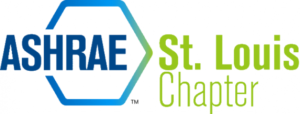Date: September 9, 2019
Russo’s Spazio Westport – 12031 Lackland Rd, St. Louis, MO 63146
FEE
Free for ASHRAE St. Louis Members and full time students
$25 for Non-members
EVENT SCHEDULE:
10:15 AM– 10:45 AM Registration & Networking
10:45 AM – 11:45 AM Technical Session
11:45 AM – 1:10 PM Lunch and Main Session
—————————————————————–
Speaker for Tech and Main Session:
Thomas H. (Tom) Durkin, PE
ASHRAE Fellow
Recognized as an innovative and creative engineer throughout the Midwest, Tom directs all mechanical and plumbing engineering for SDA. Tom’s designs for buildings and systems are proven to be safe, energy-efficient, and cost-effective. A nationally sought-after speaker and frequent ASHRAE author who promotes energy-smart HVAC systems, Tom is also a contributor to the U.S. Department of Energy. He designed the first “Energy Star” school HVAC system in the Midwest. In 1998, Tom presented one of his innovative systems to members of the United States Congress. Tom has either invented or pioneered the implementation of nine distinct HVAC innovations, all which save energy and reduce pollution.
Tom’s design work has won twelve (12) state, national, and international awards, including two ASHRAE Technology Awards. He has written many articles for the ASHRAE journal and other industry magazines, and his work has been featured in several others. Tom is co-author of the HVAC Pump Handbook, the definitive text on all things hydronic.
Tech Session: Low Temperature Heating Applications and Economics
Durkin’s first low temperature (130F max) boiler design was in 1990, and it wasn’t because he was trying to save energy. Nor was the second, but after checking back with the owners on operating cost, it was apparent that efficiency gains were many times greater than could possibly be predicted by looking at boiler rating. His findings were published in the July 2006 ASHRAE Journal Boiler System Efficiency.
Main Session: Humidity Control with and without Reheat
Durkin’s approach is that most applications do not need for designers to control humidity, rather just make sure it doesn’t get out of control. Humidity control can be active or passive, but it should never be ignored. This talk will explain low cost but highly effective solutions that work in all climate zones.











